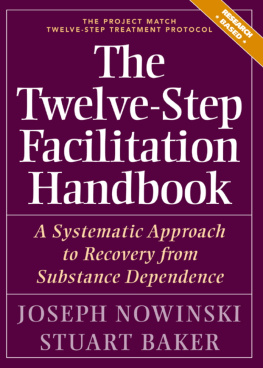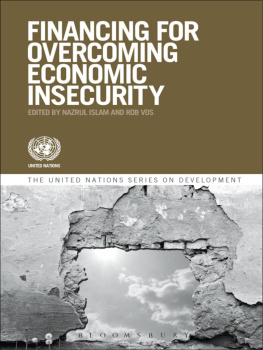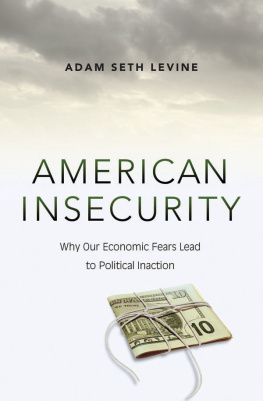Prologue
Have you ever been called thin-skinned?
Do you get jealous easily?
Are you a self-conscious person?
Can even a minor conflict with someone close to you send you into an emotional tailspin, clouding your mood and outlook for days?
Does even slight criticism trigger feelings of anxiety or depression that distract you and linger?
Do you find it hard to be direct with people, for fear of hurting their feelingsor making them angry?
Have you often felt let down, even by those you are closest to?
Do you live with constant, nagging worries that somehow you just dontmeasure up?
Have you ever felt that you were emotionally manipulated by someone whotook advantage of your sensitive nature?
If one or more of the above questions describes you or someone you love, then this book could help.
The Tender Heart is about how certain personality traits are formed, specifically insecurity. This term has been popular for a long time; probably most of us have used it to describe either ourselves or someone we know. Yet as often as it is used, the concept of insecurity is not well understood.
This book is about insecurity: what it is, where it comes from, and how to conquer it. The Tender Heart will enable you to understand the nature and causes of insecurity, and what you can do to heal it in yourself. You will learn how to watch out for insecurity as it affects your behavior and daily outlook, and you will discover how to minimize the negative effects that insecurity can have on your personal life, as well as your work life. If you are a parent, you will learn what you can do to prevent insecurity in your children.
Insecurity robs us of our zest for life. Instead of approaching life with openness and excitement, insecurity makes us approach life in a defensive, self-conscious, and anxious way. It undermines our potential for success, and it smothers our creativity. Insecurity makes true intimacy difficult if not impossible to achieve, and limits a relationships growth.
The good news is that insecurity can be overcome. It is definitely not the equivalent of a psychological life sentence. Inside every insecure personality lies a sensitive soul. It is very possible for the insecure man or woman to shed insecurity and free that soul.
Loss and separation, and conflict or criticism, can affect some people so severely that they become dysfunctional. Their insecurity can seriously compromise these men and womens capacity to successfully form and sustain relationships and fulfill their potential. They tend to be chronic underachieversin love as much as in the workplace. Many of these people were born sensitive; but they were not born insecure; rather, they became insecure as a result of their experiences. Perhaps youor someone you loveis like this. Perhaps you or they have experienced the pain of having extreme and dysfunctional reactions to conflict, criticism, or loss. Perhaps you have experienced what it is like to have been born sensitive, and then to have become insecure.
* * *
This book looks at the way in which the type of dispositions we are born with interacts with the experiences we have to determine the unique personality we eventually develop. People may be born sensitive, but they are not born insecure. That means there is much that can be done to heal insecurity in ourselves. It also means that parents can help prevent insecurity from undermining even the most sensitive of childrens potential to find fulfilling relationships and realize their potential. This book will also help you to understand why some people are especially vulnerable in relationships and get hurt easily and often, and why there are some people who have trouble ever being intimate, and who are pretty much unaffected when a relationship ends.
Insecurity plays a major role in the way people view the world and in how they respond to it, including how people react to conflict, criticism, and loss. For example, consider the different ways in which people react to a loss, such as the loss of a relationship. Most of us are familiar with the idea that people go through several stages of grief when they experience such a loss. The grief process is said to start with denial: refusing to face the facts of a loss. We may, for example, tell ourselves something like, He didnt really mean it when he said he wanted to break up, or, Ill just call him tomorrowhell feel better by then.
From denial, grief progresses to bargaining, which can look something like this: Maybe he just needs a little space. Ill give him some space and then hell decide he still wants us to be together. Another common variation on bargaining is to decide that dating others is really okay, and that it doesnt mean the relationship is really over.
When denial breaks down and bargaining fails, grief progresses to anger. We are, understandably, angry about losing our boyfriend or girlfriend, husband or wife. Beneath this anger, though, lies a lot of pain and sadness, which mark the next stage in the grief process.
The final stage is called, simply, acceptance. At this point there may be some lingering sadness, or at least moments of sadness; but there is no more denial or bargaining, and our anger and pain have largely subsided.
Grief typically does not follow these stages so neatly. It is, rather, a process, and we can move back and forth between stages for some time as we work our way from denial to acceptance. Still, although these stages may accurately describe normal, or average, grief, most of us also know that peoples reactions to loss in reality vary a great dealso much so that we might question whether these stages, and the normal grief process, truly apply to everyone. Reactions to loss can differ so drastically that, observing them, it can be hard at times to make sense of some of them. Consider the following three different reactions to the breakup of a relationship.
The first person reacts to the breakup with a deep feeling of sadness that waxes and wanes. At times he cries, or at least feels like crying. Seeking comfort, he turns to the company of old and trusted friends. He may be distracted, sleep poorly, or find that his appetite is gone. He wonders at times whether the breakup couldnt somehow have been avoided if either he or his ex had only done something differently. Regardless of the reasons for the breakup, there are moments when he misses his ex-partner, and at these times feelings of sadness dominate his mood. There are moments, too, when he is just plain mad at her for leaving him.














